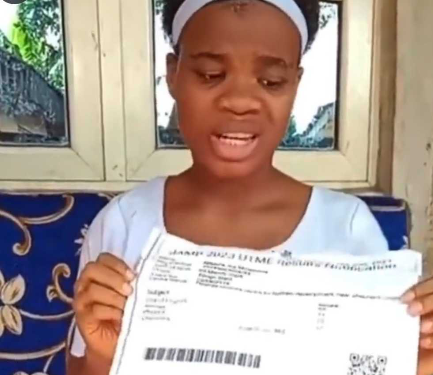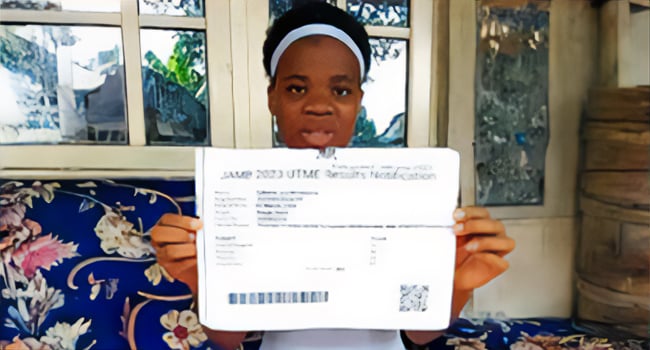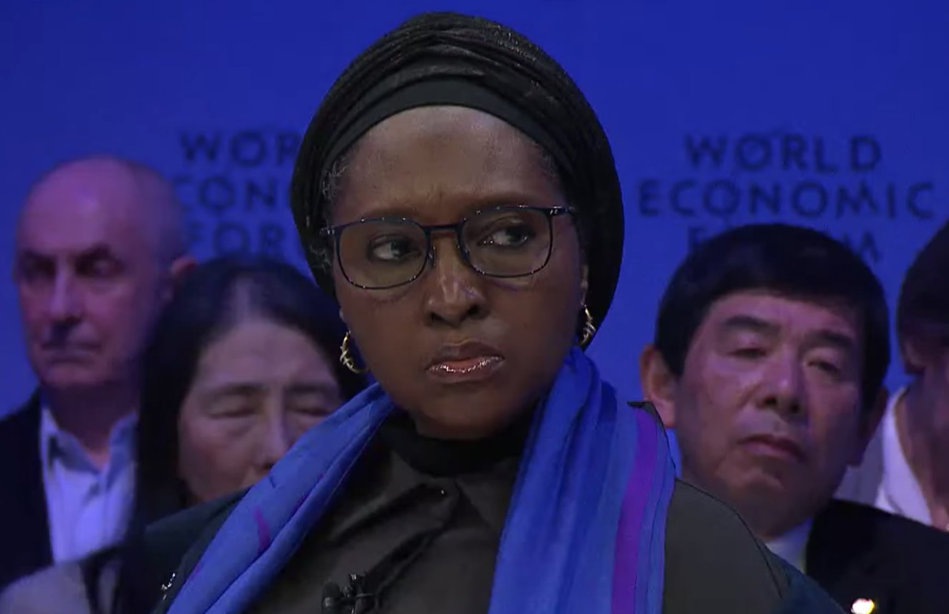I’m not sure what breaks the heart more: her insistence on her innocence or the prospects of a future that now hangs in the balance. For a young adult with a promising future, the emerging facts only suggest one thing: it doesn’t rain, it pours.
Mmesoma Ejikeme was one of the numerous students of Anglican Girls Secondary School (AGSS), Nnewi, Anambra State, who took the Unified Tertiary Matriculation Examination (UTME) in May 2023.
The first child in a family of four whose father eked out a living as an Okada rider, Mmesoma remained not just the pride of her parents, she was also one of the stars in AGSS, a missionary school handed back to its owners by former Governor Peter Obi in 2009.
Many public schools across the country were returned to the missions after years of neglect and mismanagement by government. It appears that the very reason they were returned has come back to haunt the new owners.
Advertisement
“My dream,” Mmesoma told reporters in the thick of allegations this week that she forged her UTME result, “was to become a pharmacist or a medical doctor. And I have always studied and worked hard to achieve it.”
That dream has either taken a fatal blow or may be unravelling after the Joint Admissions and Matriculation Board (JAMB) flagged Mmesoma’s result as forged and barred her from exams conducted by the board for three years.
For a country obsessed with politics, it was a surprise that the misery of this young adult and her family toppled political stories on the front pages for days and even drowned the heroics of the World, Commonwealth and African champion athlete, Tobi Amusan, who repeated her 2022 feat at the Diamond League in Stockholm, Sweden.
Advertisement
Instead of draping the national flag and posting Tobi’s photos on timelines like we did last year, the public space morphed into a triangle of controversy covering Mmesoma and her family; her school and the Anambra State Government; and JAMB.
High on emotions but short on facts and logic, the lynch mob on social media, never short of subjects and objects, has snapped up the vomit. As usual, it is prosecuting, judging and executing with the virulence and toxicity of snake venom.
Some of the toxicity has also managed to seep in from a bitter spring of ethnic divisions that left the country deeply divided after the general elections. Yet, this tragedy is neither Igbo nor Yoruba; neither Efik nor Fulfude. It’s a human tragedy.
It does appear that Mmesoma has been duped. Or she may have let herself into something she must now be sorry for. Information from her own video, interviews, and the response of JAMB, tend to show that the “notification of result” in which she claimed she scored 362, was fake.
Advertisement
Apart from taking JAMB’s word for it, I have spoken with six other candidates who took the same May UTME exam with Mmesoma. None of them has a slip that bears “notification of result,” which the examiner, JAMB, insists is one of the marks of the forged result.
The mix-up in her date of birth – which actually reflected the date of birth of Asimiyu Mariam Omobolanle, the original owner of the slip who took the exam two years ago and scored 138, and the bar code – also suggest strongly that what Mmesoma is showing as her result, was not her result.
Candidates get their results through one of two means: either by SMS or through the JAMB portal. The board has gone to extraordinary lengths to ensure that both methods are significantly secure. Of course, there are numerous fake sites offering everything from “upgrade” of JAMB scores to “self-service results,” complete with options for grades a la carte. I guess you would find similar Ochanja markets, even for politicians.
Yet, in Nigeria’s forest of desperately failing public institutions, JAMB, especially under Professor Ishaq Oloyede’s watch, has been exceptional. It understands that if the bird has learnt to fly without perching, the hunter must also learn to shoot without missing.
Advertisement
Except if Anambra State Governor Charles Soludo has other assignments for his investigating committee of eight of whom five are professors, it does not require a committee of eggheads to see that either Mmesoma has been duped, egged on by family, or she may have been a willing part of a bigger scam.
Mmesoma’s travail is not an isolated case or one-of-a-kind. Perhaps, hers has re-echoed because of the ripple effects. She was on her way to winning a scholarship from the state government, after a N3m award by Innoson Motors Chairman, Chief Innocent Chukwuma, when the bubble burst.
Advertisement
More audacious is Kaduna State-born Gerald Atung, earlier reported to have obtained 380 points in the same exam. Unlike Mmesoma, however, Gerald got his distinction for an exam he neither registered for nor participated in.
According to JAMB, “Gerald Atung never obtained the 2023 UTME forms not to talk of sitting for the examination.” Miracle? Even a credulous congregation might argue that at least there was water, before it became wine!
Advertisement
How did we get here? As in many things dumb and useless, politicians have managed to lead the way to the collapse of values. When they started throwing money at candidates with the highest cut-off marks in JAMB, instead of investing more in primary education, making public secondary schools more competitive, and state-owned tertiary institutions more skills-driven and science-focused, it was only a matter of time before they would democratise the rat race. Now, we’re reaping the whirlwind.
Politicians have continued to make a lot of noise about JAMB cut-off scores, even when JAMB has said, time and again, that the idea of cut-off marks is meaningless. Owners of private schools and tutorial/CBT centres also use high UTME scores as a sales gimmick and the fool’s button.
Advertisement
A candidate is assessed for admission not only on the basis of their UTME score, but also based on their school certificate exam result and their post-UTME score.
Crucially, other factors such as the general performance for that year, compliance with admission rules (by both the schools and candidates) for the course of study, quota catchment, and availability are also important. The cut-off war is unnecessary and irrelevant. What is the use, for example, of splashing cash on a cut-off hero who fails the school certificate examination?
As far as UTME goes, Mmesoma’s 249 was a good score and didn’t need padding. With 64 in Use of English; 54 in Physics; 74 in Biology; and 57 in Chemistry, I’m not sure if she would have made it into Pharmacy at the University of Lagos, which was her first choice or the Lagos State University, which was her second.
But assuming she passes her school certificate examination (and/or the NECO, which she is still taking), she might have been in good stead either for a state university, a federal university in the south-east, or one in Delta state, which has no place at all for quota.
Mmesoma’s travail shows that obsession for shortcuts and quick fixes often leads to broken hearts and deeper misery. It’s not about tribe or ethnicity, else Mmesoma would not have chosen all four school choices outside the south-east, her native enclave.
She made the regrettable error of climbing the tree of her ambition beyond the leaf. And sadly, she has landed where there’s no road to medicine or pharmacy and she cannot continue to double down. Life is not over. With help, she can rise again.
JAMB has made its point robustly. It has rightly thrown out the bath water. It should, however, spare the baby.
Ishiekwene is the editor-in-chief of LEADERSHIP
Views expressed by contributors are strictly personal and not of TheCable.
Add a comment







